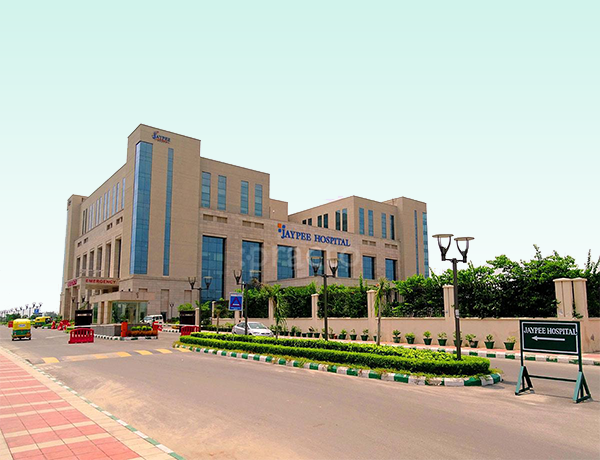Interstitial Lung Disease (ILD)
Interstitial Lung Disease (ILD) is an umbrella term for a group of lung disorders characterized by inflammation and scarring of the lung tissue (interstitium). The interstitium is the space between the air sacs in the lungs where oxygen is absorbed into the bloodstream. ILD can lead to reduced lung function and breathing difficulties. It encompasses various conditions, including idiopathic pulmonary fibrosis (IPF), sarcoidosis, and hypersensitivity pneumonitis.
Symptoms
The symptoms of ILD can vary depending on the specific subtype but may include:
Shortness of Breath: Gradually worsening over time and often during physical activity.
Chronic Dry Cough: Persistent cough without mucus production.
Fatigue: Due to reduced oxygen absorption by the lungs.
Chest Discomfort: A sense of tightness or discomfort in the chest.
Unintentional Weight Loss: As a result of breathing difficulties and reduced appetite.
Causes
The causes of ILD can be diverse and include:
Environmental Exposures: Exposure to asbestos, silica dust, and other harmful substances in the workplace can lead to ILD.
Autoimmune Diseases: Some autoimmune disorders, such as rheumatoid arthritis and systemic sclerosis, can trigger ILD.
Infections: Certain infections, like pneumonia, may contribute to ILD.
Medications: Some medications, particularly certain chemotherapy drugs and heart medications, can cause ILD.
Idiopathic: In some cases, the cause of ILD remains unknown, leading to the term “idiopathic.”
Diagnosis of Interstitial Lung Disease (ILD)
Diagnosing ILD typically involves:
Medical History: The doctor will inquire about symptoms, potential exposures, and medical history.
Imaging Tests: Chest X-rays and high-resolution CT scans help visualize lung abnormalities.
Pulmonary Function Tests (PFTs): These measure lung capacity and airflow and can identify impaired lung function.
Lung Biopsy: In some cases, a lung biopsy may be necessary to confirm the diagnosis and identify the specific subtype of ILD.
Who Needs Interstitial Lung Disease (ILD) Treatment
ILD treatment is essential for individuals who:
Have been diagnosed with ILD based on symptoms and diagnostic tests.
Are experiencing ILD symptoms that affect daily life, including breathing difficulties or fatigue.
Need guidance on managing ILD symptoms, medications, and lifestyle adjustments.
When to See a Specialist
Consult a pulmonologist or a specialist in ILD if:
You have been diagnosed with ILD or are experiencing ILD symptoms.
ILD symptoms are worsening despite initial treatment.
You need specialized care for ILD, including access to therapies and medications.
Procedure
Diagnosis: ILD is diagnosed through a combination of medical history, imaging tests, and lung function tests.
Treatment Plan: A personalized treatment plan is developed based on the diagnosis. It includes medications, lifestyle modifications, and regular check-ups.
Medication Management: Medications such as corticosteroids, immunosuppressants, and oxygen therapy may be prescribed to manage symptoms and slow disease progression.
Lifestyle Adjustments: Lifestyle changes may include quitting smoking, maintaining a healthy weight, and managing comorbid conditions like rheumatoid arthritis.
Road To Recovery
ILD is often a chronic condition, but proper management can help individuals lead fulfilling lives. Recovery involves adherence to the treatment plan, regular medical check-ups, and a focus on overall health.
Risk Management
Managing ILD effectively involves minimizing risks such as:
Exacerbations: Avoiding known triggers, getting vaccinations, and adhering to prescribed medications can reduce the risk of exacerbations.
Infections: Practicing good hygiene and avoiding contact with sick individuals can lower the risk of respiratory infections.
Medication Side Effects: Understanding potential side effects of ILD medications and communicating any concerns with your healthcare provider.
Benefits of Interstitial Lung Disease (ILD) Management
Improved Quality of Life: Effective ILD management can reduce symptoms, enhance daily life, and support overall well-being.
Slowed Disease Progression: Proper treatment can slow the progression of ILD and reduce the risk of complications.
Enhanced Lung Function: Maintaining better lung function through treatment helps improve breathing and physical capacity.
Frequently Asked Questions
Can ILD be cured?
ILD is often a chronic condition, and while some cases may respond to treatment, there is no universal cure. The goal is to manage symptoms and slow disease progression.
Can ILD be reversed?
ILD-related lung scarring cannot be reversed, but proper treatment can help prevent further scarring and improve lung function.
Are there any ILD-specific diets or supplements?
While there’s no specific diet or supplement for ILD, maintaining a balanced diet rich in fruits, vegetables, and lean proteins can support overall health. Consult your healthcare provider for guidance.
Is ILD contagious?
No, ILD is not contagious. It is a non-communicable lung condition often caused by environmental exposures or underlying medical conditions.
Can ILD be managed without medication?
Medications are a key component of ILD management, but lifestyle changes and oxygen therapy can also play significant roles in symptom control and slowing disease progression.
Treatment Plans
- Trauma & intensive care $59
- Aged Care $29
- Community Services $25
- Diagnosis & Investigation $48
- Medical & Surgical $82
- Mental Health $74
- Rehabitation $24
- Specialised Support Service $19
- Trauma & intensive care $59
- Aged Care $29
- Community Services $25
- Diagnosis & Investigation $48
- Medical & Surgical $82
- Mental Health $74
- Rehabitation $24
- Specialised Support Service $19
Treatians As The Best Choice
Treatians understand that seeking medical treatment abroad can be a daunting experience for patients and their families. That’s why the company offers end-to-end support to its clients, from the initial consultation to post-treatment care. The company provides personalized treatment plans that are tailored to meet the individual needs of each patient, and its team of dedicated professionals is always on hand to provide guidance and support throughout the entire process. Contact us at +91-7982312582, drop your email [email protected]
- Trauma & intensive care
- Aged Care
- Community Services
- Diagnosis & Investigation
- Medical & Surgical
- Mental Health
- Rehabitation
- Specialised Support Service
Service Recipient Says

Oxmox advised her not to do so, because there were thousands of bad Commas, wild Question Marks and devious.
Kolis Muller NY Citizen
Oxmox advised her not to do so, because there were thousands of bad Commas, wild Question Marks and devious.
Kolis Muller NY Citizen



















Oxmox advised her not to do so, because there were thousands of bad Commas, wild Question Marks and devious.
Kolis Muller NY Citizen